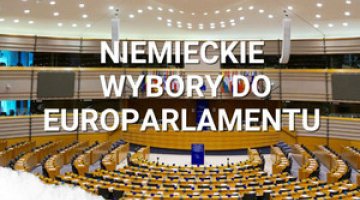Attack in Magdeburg: boost for AfD and CDU/CSU in the election campaign
On 20 December, a 50-year-old Saudi man drove a car into a crowd at a Christmas market in Magdeburg, the capital of Saxony-Anhalt, killing at least five people and injuring 200, including 40 who sustained serious or critical injuries. Chancellor Olaf Scholz and Friedrich Merz, the opposition leader and the CDU/CSU’s candidate for chancellor, visited the site of the tragedy. In their initial statements, they emphasised the need to avoid using the event for campaign purposes. The Bundestag’s internal affairs committee will hold a special meeting on 30 December to address the terrorist attack. During this session, Interior Minister Nancy Faeser from the SPD will respond to MPs’ questions. The Social Democrats are also planning to seek answers from Saxony-Anhalt’s interior minister, Tamara Zieschang of the CDU.
German security agencies are classifying the attack as unusual. Taleb A., a psychotherapist who has legally resided in Germany since 2006, displays traits associated with both Islamist terrorists and the far-right. He has voiced radical opposition to Islam while simultaneously accusing the German government of Islamising Europe. The opposition, particularly the AfD, aims to capitalise on the security agencies’ failures to attack their political opponents during the election campaign.
Commentary
- The lack of cooperation between the security agencies and their disregard for potential threats have once again undermined efforts to prevent a terrorist attack in Germany. Since 2010, around 45 people have been killed in terrorist attacks in the country. In each case, inadequate cooperation between institutions responsible for security has been identified as a key factor behind the failures to thwart such atrocities. The Saudi man who committed the attack in Magdeburg had drawn the attention of both state and federal governments for years but was never considered a serious threat. In 2013, he was fined for issuing threats against a medical association; in 2023, the Federal Office for Migration and Refugees (BAMF) shared information about him with security agencies. The Federal Criminal Police Office (BKA) opened an investigation after receiving a warning from Saudi Arabia, but the case was deemed too minor to pursue further. Calls for strengthening the capabilities of the security agencies, particularly by allowing them to collect and store telecommunication data (a proposal by the CDU), as well as improving coordination between the agencies, are likely to feature prominently in the ongoing election campaign. Moreover, the next Bundestag is expected to pursue a significant overhaul of Germany’s internal security system, moving towards greater centralisation.
- The Magdeburg attack will boost both the AfD and the CDU/CSU in the ongoing election campaign. Despite the perpetrator’s expressed support for the AfD, a significant portion of the public is likely to adopt the narrative that yet another immigrant carried out an attack in Germany. In its initial responses, the AfD and the BSW accused Chancellor Scholz’s government of numerous failures in domestic security policy. The AfD also announced plans to stage demonstrations against the government’s immigration policy. Protests by anti-immigration groups, including the neo-Nazi NPD (currently known as Heimat), were already held in Magdeburg over the weekend of 21–22 December. The CDU has also sharply criticised the governing coalition for its failure to enact security policy reforms following recent attacks, including the one in Solingen last August, and for maintaining an overly liberal stance on migration issues. The CDU and CSU are regarded by voters as the most competent parties in matters of domestic security. Alongside economic concerns, these issues are expected to dominate public debate leading up to the Bundestag elections on 23 February, which will further work to the Christian Democrats’ advantage.




